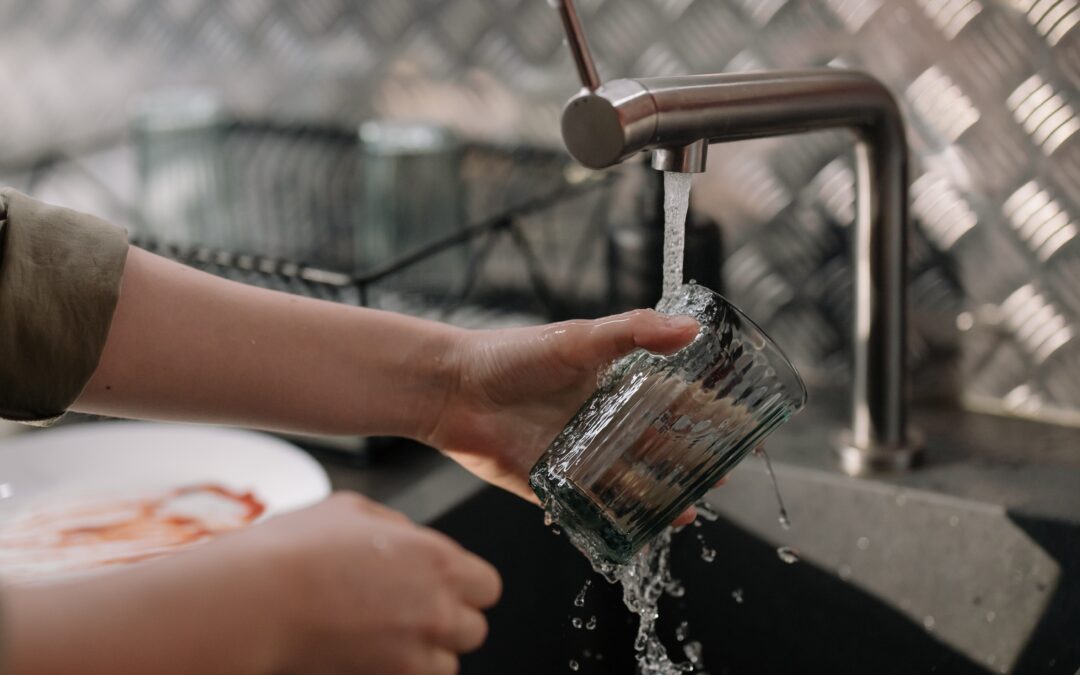Poland is among the EU countries that have failed to implement a European directive on water quality, which includes measures intended to combat the presence of legionella bacteria, a European Commission spokesman has confirmed.
The news comes as Poland grapples with a growing outbreak of legionella pneumophila – the bacterium that causes Legionnaires’ disease – which has so far killed 16 people and may have originated in the water system.
So far, there have been 155 confirmed infections in the area around the southeastern city of Rzeszów. Individual cases have also begun to appear in other parts of the country. Legionella is transmitted via warm water systems through inhalation, for instance during showering.
However, a Polish government minister says that the failure to implement the EU directive has no bearing on the current outbreak.
The death toll has now risen to seven in an outbreak of Legionnaires' disease in the city of Rzeszów.
The source of infections – with 113 confirmed cases so far – remains unknown but the city will disinfect its water supply with chlorine this weekend https://t.co/giXYBpPBt5
— Notes from Poland 🇵🇱 (@notesfrompoland) August 25, 2023
EU countries had until 12 January this year to implement a European directive setting, among other things, parameters for acceptable levels of legionella bacteria in the water system and outlining the action to be taken when these indications are exceeded or when outbreaks occur.
The directive introduces stronger drinking water quality standards and risk assessments from the intake to the point where water is supplied to consumers. It also obliges EU countries to risk assess their national water distribution systems by January 2029.
“On the basis of the risk assessment, Member States should take all necessary measures to ensure that appropriate control and management measures are in place, for example in case of outbreaks, and that the migration of potentially harmful substances does not endanger human health,” the directive reads.
🚰#drinkingwater #WFD : https://t.co/S5ukjO22pE pic.twitter.com/lheQawU4PG
— Émilie Vanderhulst 🌻 🇧🇪🇪🇺💉💉💉💉 (@BirdingBrussels) March 27, 2023
Poland, however, is among the countries that has not yet implemented the directive, an unnamed spokesperson for the European Commission told Polish broadcaster RMF FM.
“The commission has therefore opened infringement proceedings against Poland for failure to notify transposition measures,” the spokesperson added.
In March, the commission announced that it was taking such measures against 20 member states which had not yet implemented the directive. One of them was Germany, which has also recently seen a growing number of Legionnaires’ disease cases.
Instytut Roberta Kocha poinformował, że w Niemczech zgłaszanych jest coraz więcej przypadków zakażeń legionellą. Jako jedną z możliwych przyczyn wymienia się zmiany klimatycznehttps://t.co/jxuUTFHAt8
— Gazeta.pl (@gazetapl_news) August 29, 2023
Poland’s Europe minister, Szymon Szynkowski vel Sęk, however, told broadcater Radio Plus this morning that the government’s failure to implement the EU water directive has no bearing on the current bacterial outbreak.
Since 2017, national “regulations are in force that allow for the proper testing of [water] samples”, including for legionella bacteria, said Szynkowski vel Sęk.
“There are signals from other countries, for example Germany, that higher temperatures are causing the proliferation of this bacterium,” added the minister. “The legal framework is irrelevant here.”
Szynkowski vel Sęk: niewdrożenie dyrektywy UE ws. wody pitnej nie ma wpływu na badanie wody na obecność bakterii legionella#PAPinformacje https://t.co/TJmM0qJRcQ
— PAP (@PAPinformacje) August 30, 2023
On Monday, the provincial sanitary inspectorate in Rzeszów presented the results of the first nine water samples taken on 18 August. Such testing can take up to ten days to complete.
“The test results showed the absence of bacterial contamination in five samples, a high level of contamination in two samples of hot water, one at a medium level, and in one sample only the presence [of bacteria] was confirmed,” announced the inspectorate.
“As of today, the results do not give us any grounds to conclude that the source of the infections is the Rzeszów waterworks,” it added.
Meanwhile, recent days have seen the first recorded cases outside the Subcarpathian province in which Rzeszow is located, with infections found in the provinces of Wielkopolska, Małopolska and Lublin.

Notes from Poland is run by a small editorial team and published by an independent, non-profit foundation that is funded through donations from our readers. We cannot do what we do without your support.
Main image credit: Pixabay

Alicja Ptak is deputy editor-in-chief of Notes from Poland and a multimedia journalist. She has written for Clean Energy Wire and The Times, and she hosts her own podcast, The Warsaw Wire, on Poland’s economy and energy sector. She previously worked for Reuters.



















